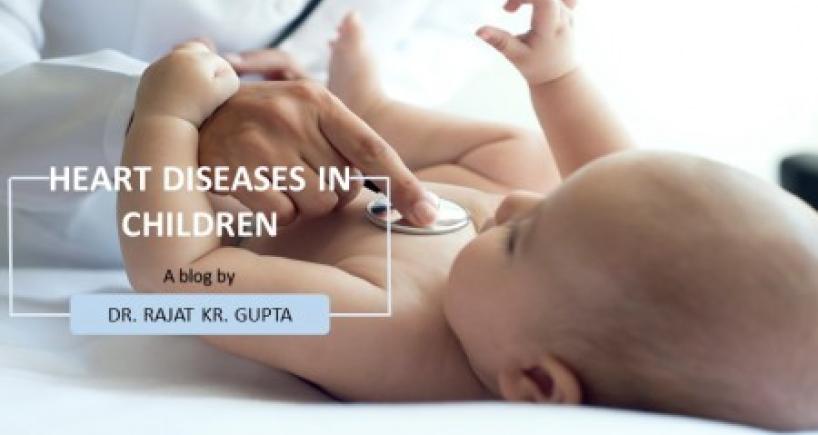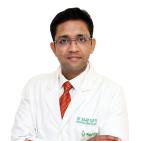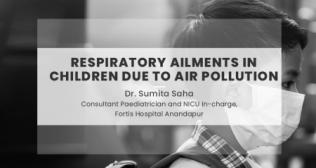
Paediatrics
Heart Diseases In Children
Dr. Rajat Kumar Gupta Sep 30, 2019

Heart diseases in children are diverse and more complicated than in adults and most of these are congenital (present since birth). Burden of congenital heart diseases (CHD) in India is enormous; nearly 180000 children are born with these defects India, every year. Unfortunately, majority of the children born with heart defects do not get the necessary care in developing countries which leads to high morbidity and mortality.
These disorders may become manifest at birth with fast breathing or low oxygen level in blood, commonly known as blue baby. A paediatrician may observe low blood pressure, abnormal breathing pattern and abnormal murmuring sounds in heart. Some of these heart diseases are silent at birth and may appear later in infancy with fast breathing, feeding difficulty, excessive sweating, failure to gain weight, easy fatigability, bluish discoloration of lips and nails or repeated episodes of pneumonia. Many of these defects are compatible with long survival and may not manifest till late childhood or adolescence.
Young parents often panic, as they come to know that their kid is having a heart defect. Sometimes they are misinformed that hole in the heart will close by itself or no treatment is required before five to ten years of age. Parents should always look for opinion from a paediatric cardiologist and follow his/her advice. They should also visit their paediatrician regularly for routine checkup, immunization and treatment of other common childhood diseases.
Generally these kids are referred to tertiary care hospital by their treating paediatrician or cardiologist. Only a handful of tertiary hospital in government or private sectors are offering treatment for these complex problems as it requires a strong infrastructure and expertise in the field.
Very little is known about what causes heart defect in a newborn baby and these conditions cannot be totally avoided. Some Viral infections during pregnancy, a few drugs, uncontrolled diabetes in expecting mother increases the risk of some of these diseases but in majority the cause remains unidentified. Chances of reoccurrence in next pregnancy is slightly increased as compared to general population but is still low and such expecting mothers are advised to have fetal echocardiography done at 16 to 18 weeks of pregnancy for early detection of the problem if present.
There has been considerable advancement in the management of congenital heart defects in past two decades. Safe and effective treatment is now available for most of these defects either by open stenting of coronary arteries in adults) with good short term and long term results. Some patients require multiple surgeries and some may need combination of catheter intervention and - open heart surgery. Many a times no intervention is required (in a very small defect) and we just follow the kid periodically. A few defects cannot be corrected even surgically and some form of palliation or cardiac transplantation is required.
श्रेणियाँ
सभी साफ करेंडॉक्टर से मिलें

Dr. Rajat Kumar Gupta
CONSULTANT PAEDIATRIC CARDIOLOGY | Fortis Mohali
- Paediatrics | Paediatric Cardiac Sciences
-
12 Years
-
550

















